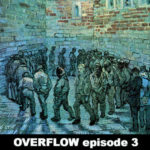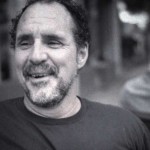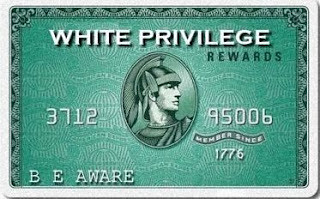We run our website the way we wished the whole internet worked: we provide high quality original content with no ads. We are funded solely by your direct support. Please consider supporting this project.
The Church & Racism in America
Over the weekend, tapes were released that revealed some shocking racists statements attributed to the owner of the Los Angeles Clippers. President Obama has commented. Sports analysts have opined. Coaches and players in the NBA are understandably disgusted and overwhelmed by it all.
What should the church say at a time like this?
The following is a passage that Greg wrote a few years ago that was never published in this form:
__________________________
While I’ve always had a heart for reconciliation (I was raised by an anti-racist father), I now realize that my perspective on the world was entirely white. I had acquaintances that were non-white, but no deep friendships that enabled me to get on the inside of a non-white experience of the world.
Fortunately, over time I developed such friendships, and they (along with a good bit of reading and a number of workshops on reconciliation) began to open my eyes to a reality I wasn’t previously aware of. I’ve gradually come to see that there’s an invisible hierarchy of privilege that I, as a white, person sit on top of. The hierarchy is structured by a myriad of invisible walls that people further down the hierarchy have to contend with but that I, as the person at the top of the hierarchy, am free to hover above.
(Diagram from Myth of a Christian Religion, page 120)
To my way of thinking, the privileged maneuvering room that whites have at the top of the pyramid explains why many white people are unaware that the walls that constrain others even exist. It explains why many of us have trouble understanding systemic racism. It explains why we tend to understand racism in individualistic terms. And this, in turn, explains why many whites don’t see racism as that big of a deal.
In what follows I want to discuss how the pyramid came to be, how it privileges whites, the nature of the walls many non-whites have to contend with, and how this whole structure is used by the principalities and powers to keep the American Church from manifesting the “one new humanity in Christ.”
I know we Americans are supposed to believe that this is the land “of equal opportunity” and while there are no longer any external legal constraints barring anyone from pursuing their dream, in reality, the slogan is simply false.
The fact is that America was conquered (not “discovered”) by white Europeans. The culture they established was therefore a culture run by them and for them. They were exclusively at the top of the culture’s pyramid of power.
Not only this, but the whole enterprise was grounded in an assumption of white superiority. African Americans, Native Americans and all other non-white groups were explicitly viewed as inferior, which is how whites justified enslaving, abusing and slaughtering them – all in the interest of strengthening and advancing the allegedly superior white culture and buttressing the pyramid of power whites enjoyed.
Of course, over a painfully long period of time, this explicitly racist mindset has lessened. With the civil rights movement in the 50’s and 60’s, most explicitly racist laws were done away with. But the pyramid of power that structures the social system of American culture largely remains. Because the explicit laws that enforced the pyramid are gone, it’s much more subtle than it used to be. Non-whites definitely have more opportunities than ever before. Yet, the pyramid is still present.
In my view, if the church in America is going to get better at manifesting the “one new humanity” of the Kingdom, the on-going power and injustice of this pyramid has got to be acknowledged, especially by the one’s who are its benefactors: white people like me. It is this pyramid that the “principalities and the powers of the air” have used, and continue to use, to keep whites and non-whites as well as different non-white ethnic groups divided. And so the main challenge for Kingdom people in America is to acknowledge and then deconstruct this pyramid.
Yet the main obstacle to acknowledging and deconstructing this pyramid is that the white folks who sit at the top tend to be the last one’s to realize where they’re sitting. It’s hard to know what you don’t know. For us white folks to begin to wake up to what we don’t know, the first thing we’ve got to do is humbly acknowledge that what we think we know may not be all there is to know.
Category: General
Tags: Justice, Racism, White Privilege
Topics: Ethical, Cultural and Political Issues
Related Reading

Podcast: Overflow Episode 3—Mass Incarceration, Racism, and Restorative Justice
Dan interviews Dominique Gilliard about his book Rethinking Incarceration: Advocating for Justice That Restores. http://traffic.libsyn.com/askgregboyd/Episode_0375.mp3

Podcast: How Do We Pursue Both: Justice and Mercy?
Greg looks at how viewing events through the eyes of love removes the apparent tension between justice and mercy. Today’s episode is sponsored by Reknew Vampire Repellant—a super-charged can of butt-kick for a blood-sucking world. http://traffic.libsyn.com/askgregboyd/Episode_0121.mp3

Willing to Bleed
What does salvation have to do with social justice? Greg turns this often-politicized question on its head in this video by The Work of the People.

Review: “The Butler”
For all the same reasons that some couldn’t set their politics aside to celebrate what the election of Obama meant for African Americans, I’m quite sure that some won’t be able to set their politics aside to appreciate the brilliance and power of “The Butler.” These folks will also likely allege that I’m being inconsistent…

Following Jesus from the Margins
D. Sharon Pruitt via Compfight Kurt Willems posted a reflection today entitled From the Margins: Following Jesus in a post-Christian culture. I hope everyone will read this. It’s a perspective from the anabaptist tradition that finds inspiration from the same data that evangelicalism finds alarming. May we all follow Jesus from the margins and offer…

Jesus Feminist
http://youtu.be/FBYELPZmdL4 Sarah Bessey’s book Jesus Feminist releases today. We’re so excited for her and for anyone who gets to read this book. She is first, and foremost a disciple of Jesus, and her embrace of feminism is inextricably wrapped in her identity as a disciple. Here’s a little snippet of something she’s written that beautifully…


